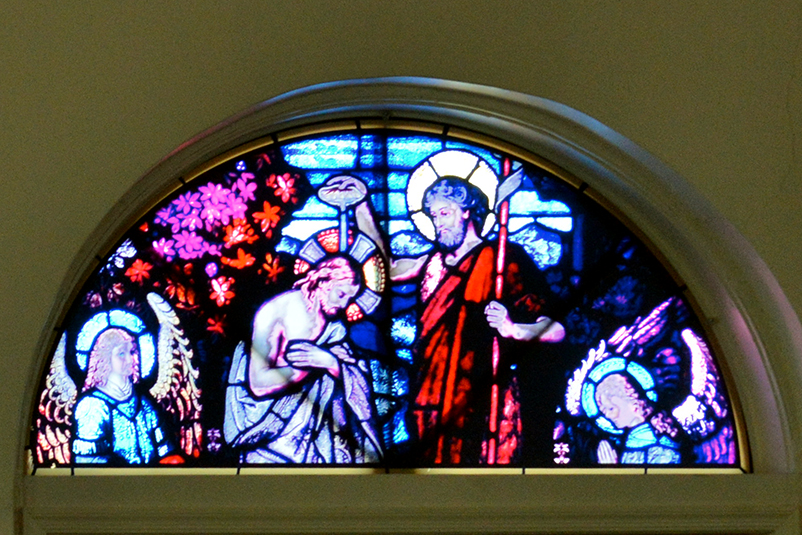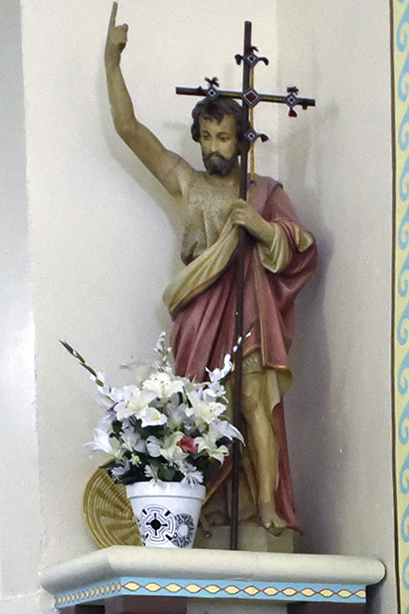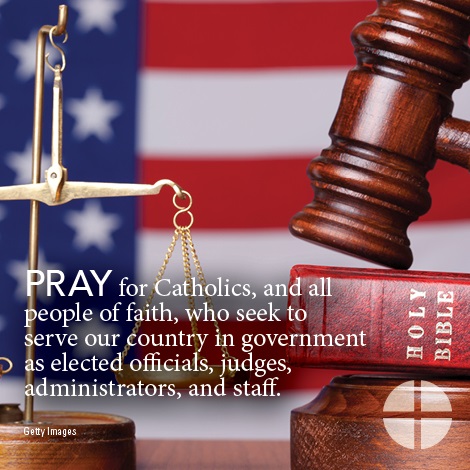

June 24
(CNA) — John the Baptist spent his adult life preparing the way for Jesus and proclaiming that “the Kingdom of Heaven is close at hand.” This feast marks his exceptional birth to the aged priest Zechariah and the equally aged and barren Elizabeth, an elderly married couple.
The Angel Gabriel had visited Zechariah and told he that his wife would bear a child, even though she was already past the child-bearing age. When Zechariah hesitates in believing, he is struck mute until eight days after John’s birth. Then, Zechariah, in a beautiful canticle that ends the first chapter of Luke’s Gospel, proclaims that John “will be called prophet of the Most High.” This canticle is recited at Morning Prayer by clergy, religious and laity daily throughout the world.
Canticle of Zechariah
Luke 1:68-79
The Messiah and his forerunner
Blessed + be the Lord, the God of Israel;
he has come to his people and set them free.He has raised up for us a mighty savior,
born of the house of his servant David.Through his holy prophets he promised of old
that he would save us from our enemies,
from the hands of all who hate us.He promised to show mercy to our fathers
and to remember his holy covenant.This was the oath he swore to our father Abraham:
to set us free from the hands of our enemies,
free to worship him without fear,
holy and righteous in his sight
all the days of our life.You, my child, shall be called the prophet of the Most High;
for you will go before the Lord to prepare his way,
to give his people knowledge of salvation
by the forgiveness of their sins.In the tender compassion of our God
the dawn from on high shall break upon us,
to shine on those who dwell in darkness and the shadow of death,
and to guide our feet into the way of peace.Glory to the Father, and to the Son,
and to the Holy Spirit:
as it was in the beginning, is now,
and will be forever. Amen.
Monday, June 24: Solemnity of the Nativity of St. John the Baptist
Pray for Faithful public servants
Reflect: In recent years, Catholic nominees to the federal judiciary have faced questions about their faith. In one exchange, a nominee was told, “The dogma lives loudly within you, and that’s of concern.” Other nominees have endured questions about their membership in the Knights of Columbus, the largest Catholic fraternal organization in the country. These religious tests are unjust and unconstitutional. At a time when our country is highly polarized, our leaders in the Senate should be working to foster tolerance, not fueling divisions. Lay Catholics exercise their apostolate by building up the common good as civil servants. Let us pray and act for our sisters and brothers who, like St. Thomas More, seek to faithfully serve both God and country.
Act: It is time for discriminatory, anti-Catholic questions to stop. Contact your senators today and urge them to reject religious tests for nominees for public office!
As a baby in the womb, John recognized Jesus’ presence in Mary’s womb when Mary visited Elizabeth during the Visitation. Both women were pregnant at the same time.
John was probably born at Ain-Karim, which is southwest of Jerusalem. As a young adult, he lived as a hermit in the desert of Judea until about A.D. 27. When he was 30, he began to preach on the banks of the Jordan, calling for repentance and baptizing people in the river waters. When Jesus came to John to be baptized, John recognized Jesus as the Messiah and baptized Him, saying: “It is I who need Baptism from you.”
John continued to preach after Jesus was baptized, but was imprisoned not long after by Herod Antipas, after he denounced the king’s adulterous marriage with Herodias, wife of his half-brother Philip.
At the celebration for Herod on his birthday, Salome, the daughter of Herodias danced for him, and Herod was so impressed that he said he would offer her anything she liked. She consulted with Herodias who told her to ask for the head of John the Baptist on a platter. In this time of despair, some of his old disciples visited him. John did not speak to them of himself, but he sent them to Christ, that they might see the proofs of His mission.
Herod did not want to kill John for fear or what his followers might do, but because of his promise to the girl he could not refuse, and so John was beheaded. At the death of his cousin, Jesus proclaimed “Amen, I say to you, among those born of women there has been none greater than John the Baptist” (Mt 11:11).
Aside from the Lord and His Blessed Mother, John is the only other individual whose birth the Church commemorates with a solemnity. John’s eventual beheading is commemorated with an Aug. 29 feast.
A patron saint of Canada and Jordan, John is also the patron of Florence and the Knights Hospitaller of St. John. He is also the patron of St. John the Baptist Parish on the Gila River Native American Reservation in Laveen, where the Franciscan Friars of the Holy Spirit reside. He is also patron of St. John of the Desert Melkite Catholic Parish in Phoenix, a parish of the Melkite Greek Catholic Eparchy of Newton, Massachusetts.







